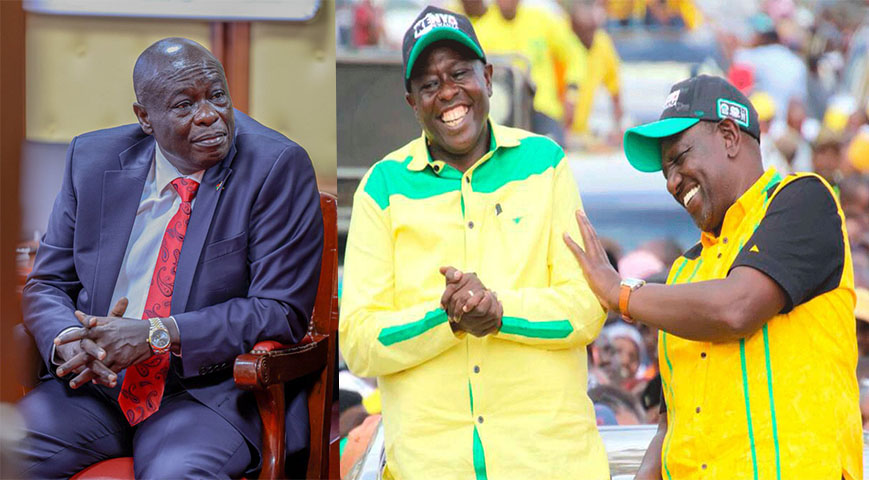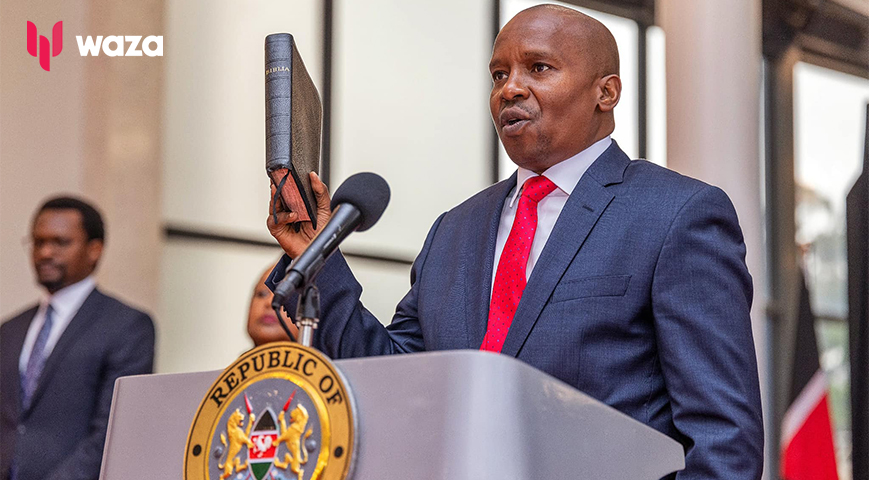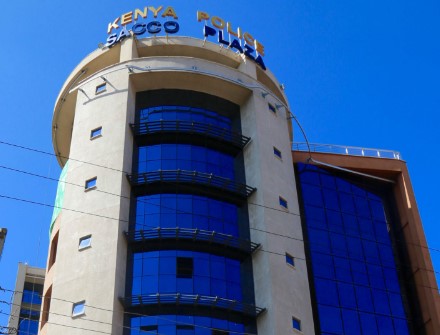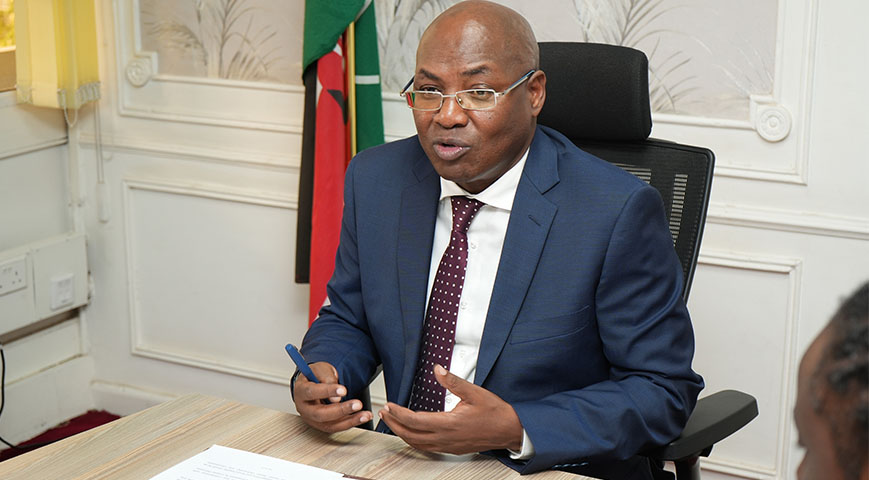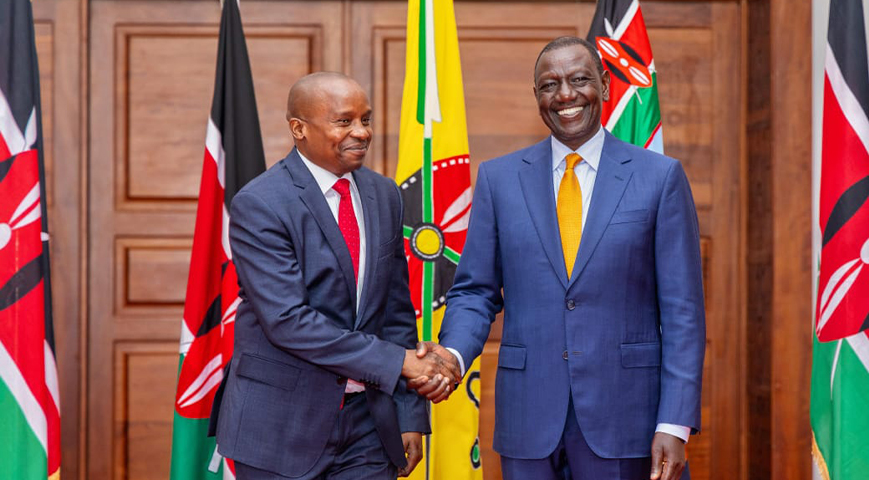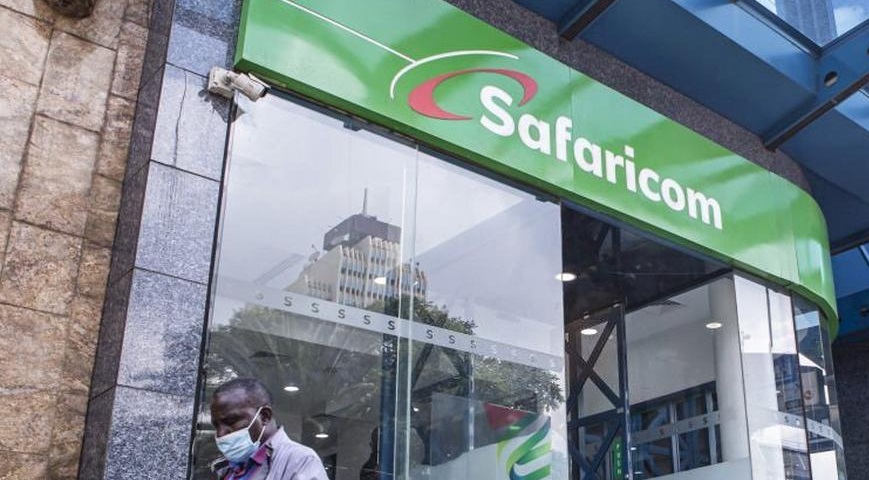Deputy president Rigathi gachagua becomes the first deputy president to be impeached since the adoption of the 2010 constitution.
This was after the national assembly and the Senate voted to oust him over several allegations ranging from corruption and tribalism to abuse of power. But how did a man with no national presence as of 2021 become Kenya's second most powerful man?
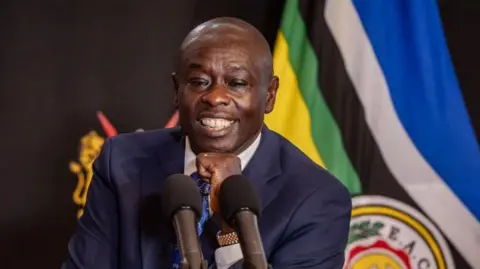
Born Geoffrey Rigathi Gachagua on February 28, 1965, in Mathira, Nyeri County, Rigathi was born in a family of Mau Mau freedom fighters and was often referred to as ''Kijana Ya Mau Mau''.
Little is known about Gachagua's schooling. He attended Kabiruini Primary School, Kianyaga High School, and later the University of Nairobi, where he graduated with a Bachelor of Arts in Political Science and Literature in 1988.
Did you read this?
Gachagua's entry into politics can be traced back to the Moi era. He served as a District Officer in various parts of the country before becoming the personal assistant to the then Minister for Home Affairs, Uhuru Kenyatta, under Moi's Moi's regime.
.jpg)
His proximity to Uhuru Kenyatta is the connection he needed to enter Kenya's political space. His political star began to shine after he won the Mathira Constituency seat under the Jubilee Party in 2017.His ability to mobilize grassroots support and reputation as a loyalist earned him considerable influence within the political ranks.
In 2022, political struggles within the then-ruling party Jubilee saw the party split in half, with the then Deputy President William ruto leaving the party to form a new party, the United Democratic Alliance( UDA), while Uhuru remained as the leader of the Jubilee party.
.jpg)
Despite Rigathi's rich and long history with Uhuru Kenyatta, Rigathi decided to bite the hand that fed him, side with Ruto, and begin trashing his former master. President Ruto had a challenging task when it came to deciding who would deputize him, as he needed votes from the Mount Kenya region to solidify his win.
With Uhuru still being seen as the defacto mount kenya Kingpin, Ruto had to pick a man who would deliver the mountain votes, and that is where Rigathi Gachagua came in.

The alliance paid off when Ruto was elected president, and Rigathi Gachagua became his deputy. Gachagua's tongue would be his undoing from the moment he was sworn in. During the swearing-in ceremony, the new deputy president launched a series of attacks on the outgoing President, Uhuru Kenyatta.
"Freedom is here with us. I want to tell the people of Kenya that you are finally free. Kenya is now a democratic country… You don't have to look over your shoulder anymore… It became a crime in this country to be a friend of William Ruto… and it wasn't even in the penal code," Gachagua declared. He added, "You are free to criticize the government without fear of reprisal."
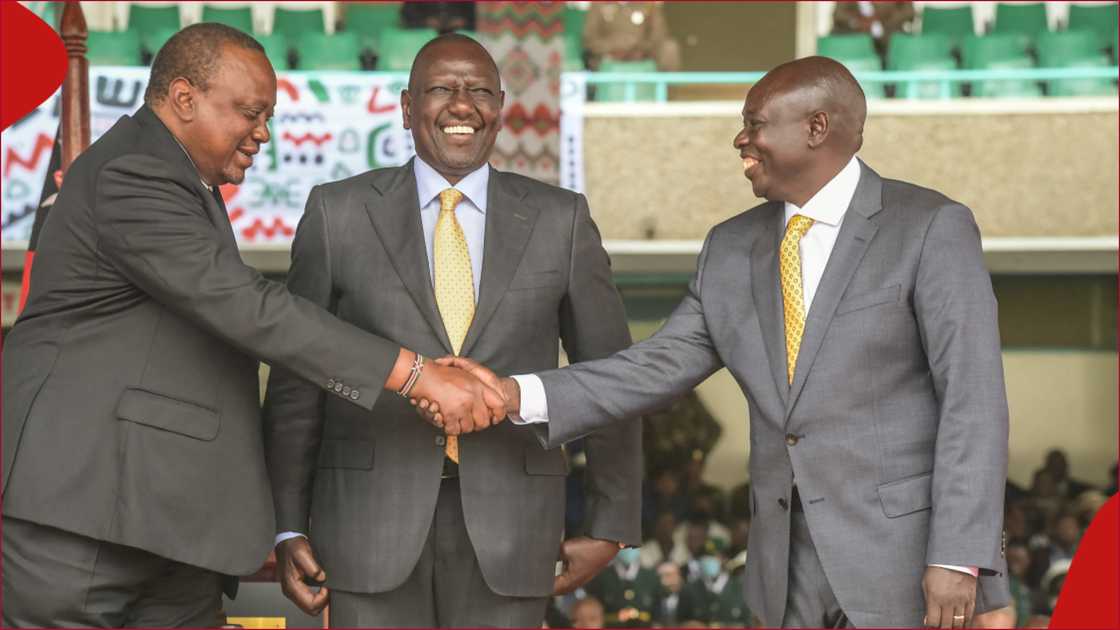
His blunt, sometimes divisive remarks would ultimately lead to his downfall. His remarks about the government having shareholders and that only those who voted for the administration would be given priority was the final nail in his impeachment coffin.
"When it comes to forming a government, no president anywhere in the world would invite people to his government who do not believe in him and his agenda. That is where the issue of shares came from," he said during a church service in March.
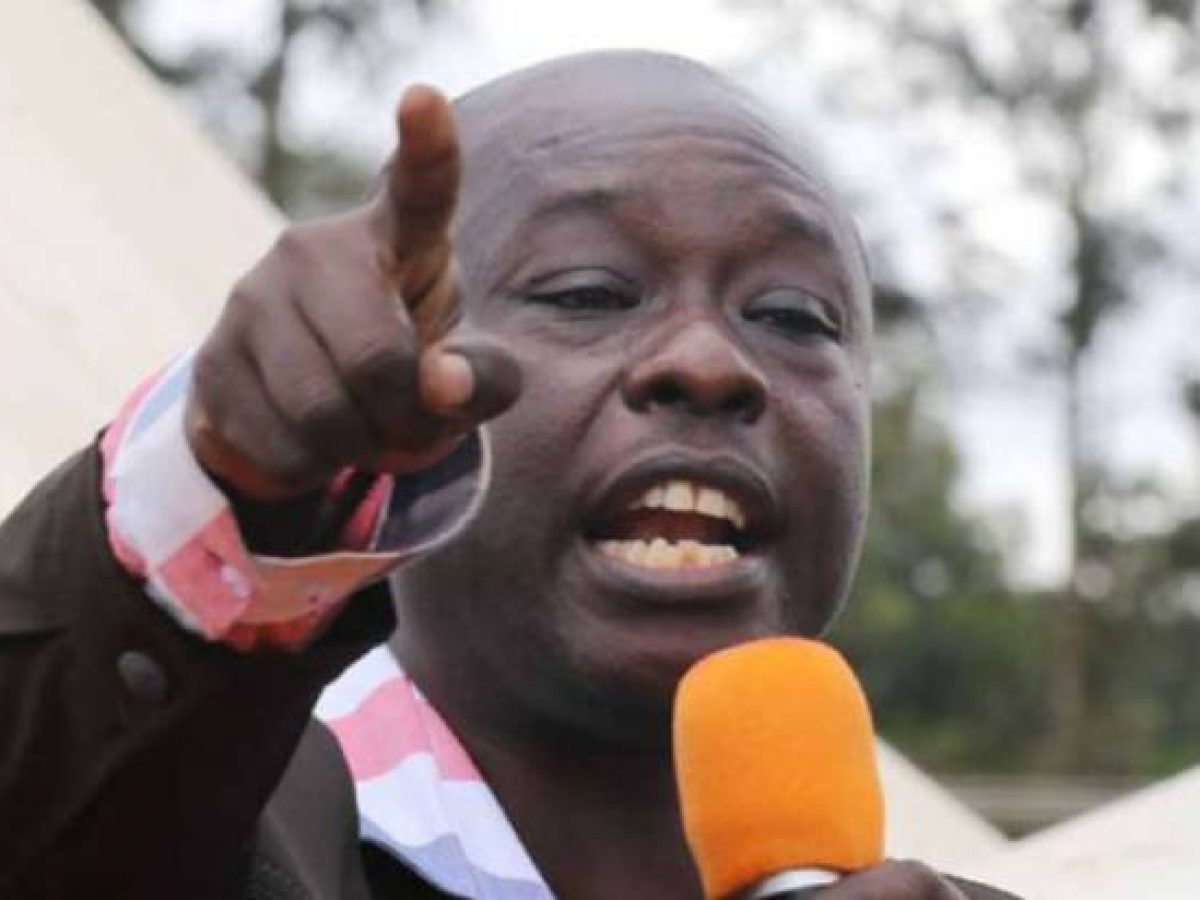
"The people opposed President Ruto, saying he is a thief incapable of running this country. There is no way we can allow those people to his cabinet, to be his principal secretaries, his ambassadors."
Only two years into their union, cracks started to appear. Reports of internal disputes between the president and his DP surfaced, with claims that Rigathi Gachagua was sidelining key allies of Ruto in government appointments.
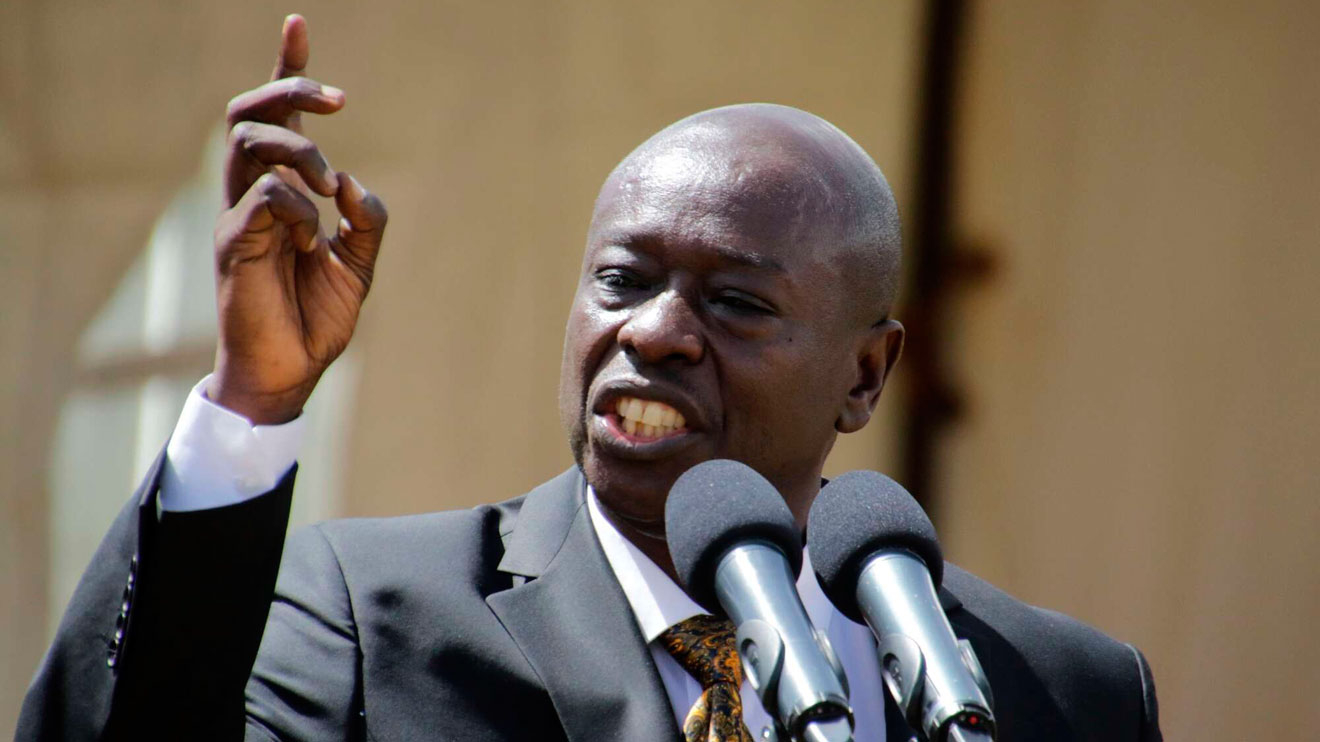
Gachagua's aggressive leadership style and controversial remarks increasingly alienated him from the broader political establishment and made him a liability to it.
The GenZ uprising was a catalyst that pushed the impeachment motion against rigathi to be tabled in parliament. Rigathi and his allies were accused of funding the nationwide protests that left hundreds of youths dead and properties worth millions destroyed.
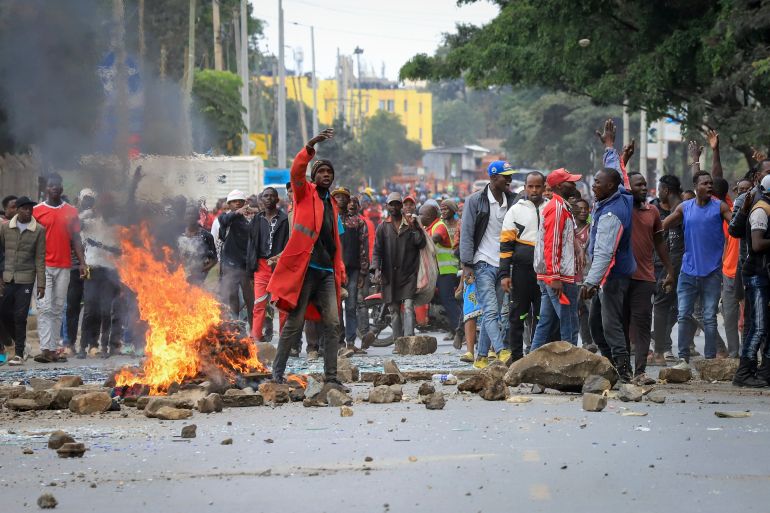
Gachagua's statements about the National Intelligence Service (NIS) Director General Noordin Haji left a bad taste in the mouths of top politicians. Gachagua accused Haji of misleading the president about the protests and its impact and called for his resignation.
"It is embarrassing that it had to take protests, deaths, and destruction of properties for the president to realize the extent of the problem. NIS embarrassed the president," he said.
"Haji was peddling lies and propaganda, trying to implicate former president Uhuru and me that we are the behind the chaos. I'm that the president has admitted that it was because of the people's anger," said Gachagua.
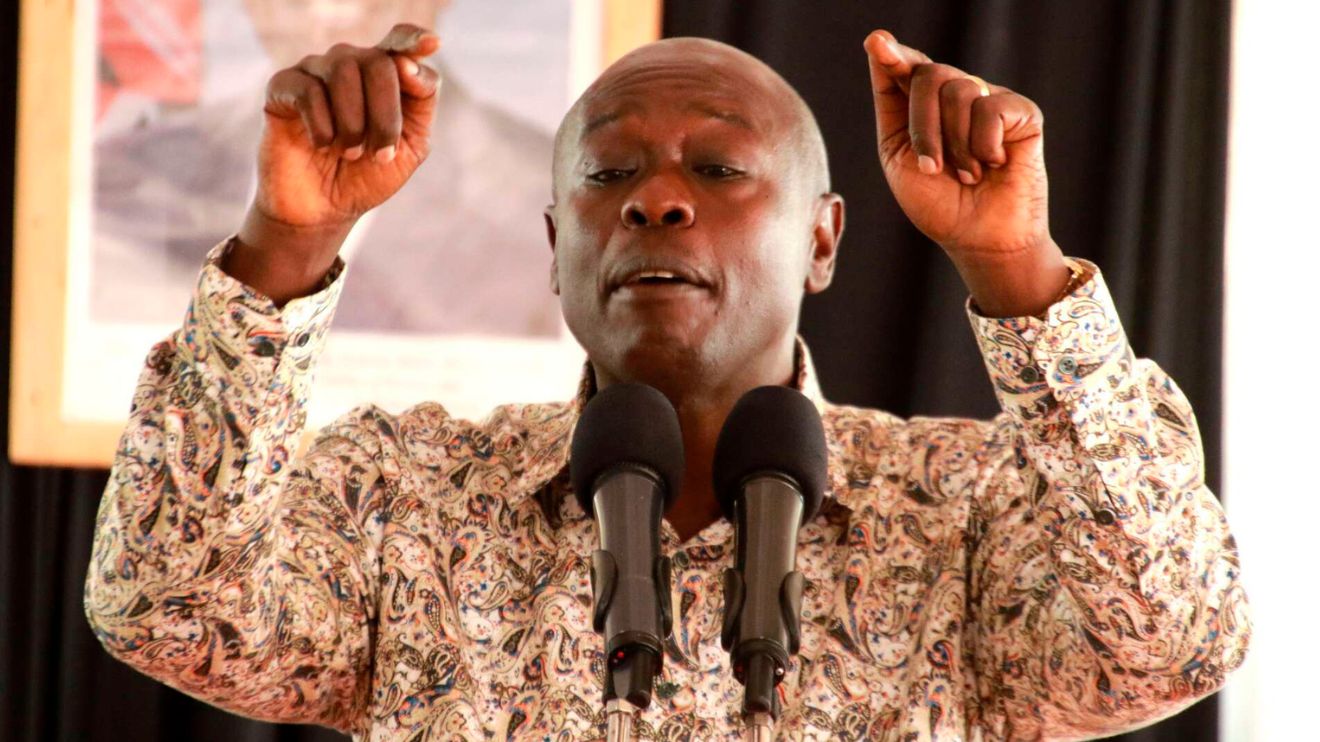
By mid-2024, the mounting pressure on Gachagua reached a tipping point. Kibwezi West MP Mwengi Mutuse tabled a motion for his impeachment in parliament. The motion gained momentum as more lawmakers, including some from within the ruling party, rallied behind it.
The allegations leveled against the deputy president are:
The first charge accuses Gachagua of inciteful remarks that divide Kenyans along ethnic lines, referencing his controversial 2023 statement that "the government of Kenya is a company with shareholders."
.jpeg)
The second charge claims Gachagua undermined President Ruto and the Cabinet by publicly opposing the government's approval of the Nairobi River Riparian Evacuation orders.
Additionally, the DP is accused of interfering in Nairobi County matters, particularly by inciting traders against their relocation and making demeaning remarks that undermine the county's leadership.

Gachagua is also charged with attacking High Court Judge Esther Maina after she ordered him to forfeit Ksh.200 million to the state. His actions allegedly undermined the judiciary's independence.
Other charges include violating his oath of office, violating the National Cohesion and Integration Act through ethnic incitement, and illegally amassing Ksh.5.2 billion using family proxies.
He is further accused of misleading the public with false statements, engaging in gross misconduct by criticizing top security officials, and colluding with agricultural cartels.
The final charge highlights allegations of bullying public officers and contractors, directing them to divert resources for personal gain.
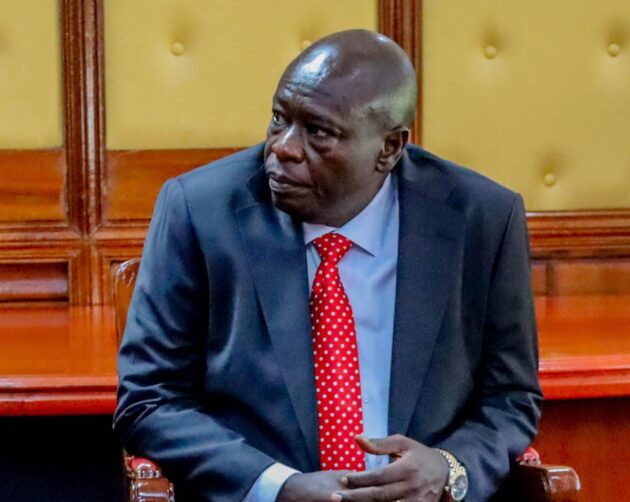
Rigathi Gachagua later held a media briefing at his official residence, denying the allegations against him and promising to fight.
His pleas fell on deaf ears as members of parliament voted to impeach him. After 281 MPs voted in favor of his removal, the motion later moved to the Senate, where he was met with the same fate. He was voted out despite being rushed to the hospital hours earlier.
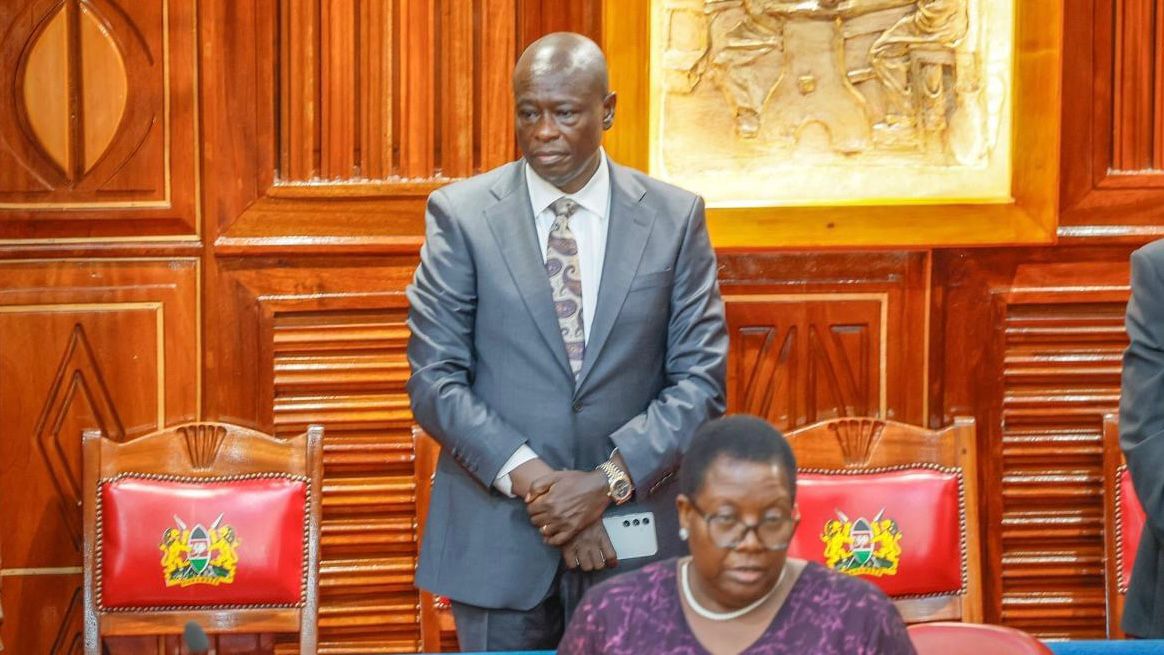
The Senate speaker, Amason Kingi, later gazetted his impeachment, solidifying his removal from office.
The Gazette Notice, dated October 17, 2024, was issued shortly after the Senate approved the impeachment motion.
A few hours later, President Ruto nominated Interior CS Kithure Kindiki as the new deputy president. Top politicians had revealed that Kindiki was always the preferred candidate for the position.

